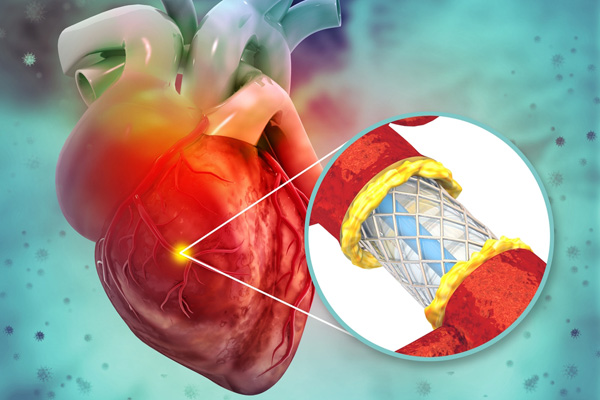What Is an Angioplasty?

An angioplasty is a common medical procedure to widen arteries narrowed or blocked by plaque build-up. It involves inserting and inflating a special balloon to open arteries, allowing easier blood flow to the heart. A cardiologist may recommend this procedure to those with coronary artery disease, severe related chest pain, or those at increased risk for a heart attack.
When is angioplasty recommended?
According to Harvard Health, about 600,000 people in the United States undergo angioplasty annually. Doctors will recommend this procedure to treat severe chest pain from blocked arteries, also known as angina. In addition, doctors will recommend angioplasty as an emergency treatment to limit damage to the heart during or after a heart attack. Doctors may also recommend angioplasty for those who have not been able to improve their heart health through medication and lifestyle changes alone.
Overview of the procedure
During the procedure, the surgeon will insert a small balloon into the blocked or narrowed section of the artery. Then the balloon is inflated, pushing the plaque against the artery walls, opening the artery, and allowing blood to flow more freely to the heart. Often, the surgeon will insert a stent during the procedure. A stent is a small mesh tube that helps hold the artery open after removal of the balloon.
What to expect
Angioplasty is a relatively safe procedure with a low risk of complications. However, it is still understandable to be nervous before the procedure. Knowing how to prepare and what to expect will help make the process less intimidating.
Pre-procedure
Preparatory instructions may vary by patient depending on the specifics of their procedure. However, patients must avoid eating or drinking a few hours before the procedure. Patients should inform their cardiologists about any medications they are taking, as they may need to stop taking certain medications, such as blood thinners, before the procedure.
During the procedure
An angioplasty can take anywhere from 30 minutes to a few hours, and the specifics of the procedure will vary by patient. The patient will wear a hospital gown and lie down during the procedure. The doctor will perform the procedure through a catheter inserted through the patient’s wrist or groin. A contrast die will help locate the blockage or blockages. All of this is done carefully under X-ray feed. Also, the patient will be under IV sedation and given medication to limit the discomfort felt from the catheter insertion and inflating of the balloon.
After the procedure
Patients typically stay overnight for monitoring and are sent home the next day with detailed aftercare instructions. Patients must avoid strenuous activity and drink plenty of water to flush out the contrast fluid. Most patients can return to work and regular activities a week after the procedure.
A successful procedure helps decrease chest pain, improve stamina, and allow patients to avoid more extensive and invasive procedures. However, it is important to understand that angioplasty does not cure heart disease. Patients must commit to a heart-healthy lifestyle and may still need medication.
For more information
Having to undergo an angioplasty procedure can seem intimidating, but we are here to help. Our experienced team will guide you through every step of the process to help ensure you stay comfortable and your procedure is successful. If you have any further questions about this procedure, do not hesitate to call.
Request an appointment here: https://floridapremiercardio.com or call Florida Premier Cardiology at (561) 325-6495 for an appointment in our Delray Beach office.
Check out what others are saying about our services on Yelp: Angioplasty in Delray Beach, FL.
Recent Posts
Concerned about an upcoming coronary angioplasty treatment? Read on to learn more about this procedure. Coronary angioplasty treatment is used to improve blood flow to the heart and its structures. Your heart is one of the hardest working muscles in your body with over 100,000 beats per day.Your heartbeats power your cardiovascular system as it…
An echocardiogram, or EKG, provides cardiologists with a detailed view of how the heart beats and pumps blood, making it one of the most useful tools for evaluating heart health. This quick, noninvasive ultrasound test helps detect problems that may not appear on a routine exam or EKG. It also guides treatment decisions for many…
Varicose veins can cause discomfort, swelling, and visible changes that affect confidence and circulation. varicose vein treatment helps relieve these symptoms while improving overall vascular health. Advances in medical technology now allow cardiologists to offer effective, minimally invasive procedures that restore proper blood flow with little downtime. Understanding what to expect from varicose vein treatment…
Peripheral arterial disease can cause uncomfortable symptoms in the legs and, sometimes, the arms. Fortunately, a cardiologist can detect this condition early and provide personalized care to minimize the day-to-day impact. While being diagnosed with peripheral arterial disease may sound concerning, understanding exactly what it means and how to manage its symptoms can lead to…


